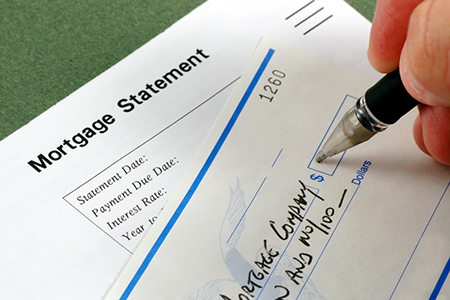(TNS)—Many mortgage borrowers at some point consider making extra payments or refinancing but are confused as to which would serve them better. This article is directed to them.
Extra Payment vs. Refinance
While borrowers refinance for a variety of reasons, only refinancings undertaken to reduce the interest rate can be viewed as an alternative to making extra payments. Borrowers should refinance to reduce the rate if the savings from the rate reduction over the period the borrower expects to hold the new loan will more than cover the refinance costs. The three most important factors in this judgment are the size of the rate reduction, the refinance costs as a percent of the balance and the life of the new loan. Mortgage Refinance Calculator 3a, found on my website, pulls these and other factors together to quantify the savings and costs.
The prepayment decision, in contrast, is best viewed as an investment decision. The funds used for extra payments are or could be invested in certificates of deposit, bonds or other assets and would earn the return being paid on those assets. Instead, they are invested in reduced mortgage debt on which the borrower earns a return equal to the mortgage rate. Yes, you read that correctly. If you are paying 5 percent on a debt and you pay it off, the funds used for that purpose earn 5 percent. The borrower should make extra payments if the mortgage rate exceeds the rate of return on the assets the borrower would hold otherwise.
Because they are based on very different factors, extra payment decisions and refinance decisions should be assessed independently. Yet each may affect the other, which is why it is easy to become confused. Two situations arise where borrowers are seemingly faced with a choice between making extra payments and refinancing.
Complete Payoff vs. Refinance
One situation is where the borrower has a sizeable amount of assets that could be used to pay off the mortgage in full, and also has an opportunity to lower mortgage financing cost by refinancing. He should pay off the loan if the return on the assets used to fund the payoff is below the rate on the mortgage after refinancing. Otherwise, he should refinance.
Here are some illustrative numbers. The mortgage rate is 4 percent, the assets used to fund loan repayment yield 3 percent, and the borrower could refinance into a 3.25 percent mortgage that would be profitable over 10 years. In this case, the borrower should pay off the mortgage because the 3 percent cost is less than the 3.25 percent rate on the mortgage after refinancing. On the other hand, if the borrower is earning 4 percent on the assets used to fund the loan repayment, he should leave the assets alone and refinance.
Periodic Extra Payments and Refinance
The second situation is where a borrower making or planning to make periodic extra payments may also have an opportunity for a profitable refinance. In this case, the borrower can do both, but the two actions may affect one another. A rate-lowering refinance reduces the rate of return on future extra payments, which could induce the borrower to reduce or stop such payments. However, the principal motivation for making extra payments seems to be to get out of debt faster, and the refinance won’t change that.
Extra payments made in the past don’t affect the refinance decision to be made now, though such payments would have made today’s loan balance smaller, which reduces the benefit from a refinance.
Extra payments that borrowers expect to make in the future should be factored directly into the refinance decision process. Extra payments reduce the expected life of the loan, which (other things the same) reduces the benefit from the refinance. In using the refinance calculator, you should shorten the term of the new mortgage accordingly. If you plan to refinance into a 30-year loan, for example, but extra payments would result in payoff in 20 years, you should use 20 years as the term. On the other hand, if the lower refinance rate induces you to terminate the extra payments, you should use the longer mortgage term in assessing the refinance.
Jack Guttentag is professor emeritus of finance at the Wharton School of the University of Pennsylvania.
©2016 Jack Guttentag
Distributed by Tribune Content Agency, LLC.











